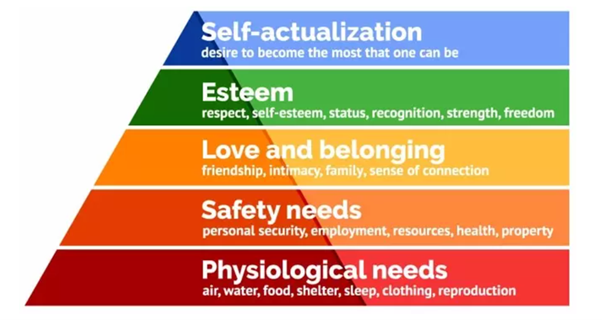Corporate Social Responsibility: Commitment from Support Foundation
What Is Corporate Social Responsibility (CSR)?
The term Corporate Social Responsibility (CSR) refers to practices and policies undertaken by corporations that are intended to have a positive influence on the society and the world. The key idea behind CSR is for corporations to pursue other pro-social objectives in addition to maximising profits. Examples of common CSR objectives include promoting volunteerism among company employees, contributing towards the environment, donating to charity work, and many more. The concept of CSR is generally understood to mean that corporations have a degree of responsibility not only for the economic consequences of their activities but also for
the social implications.
The rise of Corporate Social Responsibility is a trend that has become common practice in Australia. Whilst it is a social concept, it can affect business indirectly by influencing customer behaviour. In 2006, The Treasury mentioned that CSR is a way in which a company, by being aware of its risks, can strategically position itself ahead of its competitors and adopt business practices that maximise long-term sustainability. The Treasury also mentioned that the government should play a role in encouraging companies to embrace CSR as a strategy to ensure their long-term sustainability. Support Foundation considers CSR as one of the strategies that places itself ahead of its competitors and a way to help the most vulnerable individuals enjoy their human rights. Support Foundation mostly contributes to support basic human rights among the most vulnerable by supporting them in having their basic human needs met, mostly healthy food, proper clothing, and sustainable accommodation.
Why Should A Company Implement CSR?
Many companies view CSR as an integral part of their brand image, believing that customers will be more likely to do business with an organisation that they perceive to be more ethical. In this sense, CSR activities can be an important component of corporate public relations. According to one survey, 50% of consumers said they are likely to buy services or product from companies they view as responsible. 61% perceived that a company’s motive for social responsibility was a genuine desire to help others. 70% of Millennials and 51% percent of Boomers (50-64) say that they’re willing to pay more if that creates positive social and environmental impacts. At the same time, some company founders are also motivated to engage in CSR due to their personal convictions. At Support Foundation, the director and the team are committed to give back to the community and support the most vulnerable individuals to practice their basic human rights. Human rights are relevant to the economic, social, and environmental aspects of corporate activity. For example, corporate activity might affect a range of human rights, such as the right to clean drinking water, healthy food, proper clothing, and clean and sophisticated accommodation.
What Is the Impact Of CSR?
The movement toward CSR has had an impact in several domains. For example, many companies have taken steps to improve the sustainability of their operations, through measures such as promoting client’s relationship, ongoing employment staff, contributing to society through charity and many more. Although CSR programs have generally been most common among large corporations, small businesses like Support Foundation also participate in CSR through smaller-scale programs such as donating to local charities and sponsoring local events. We at Support Foundation practice CSR to support the basic human needs of the most vulnerable individuals in our communities through charity work; i.e., supporting people with disabilities and their families/carers. Support Foundation support them to address their basic human needs (physiological needs) like healthy food, suitable accommodation, proper clothing and many more.

In addition to the human rights standards which Support Foundation and other Australian companies are legally obliged to comply with under domestic laws, there is a broader range of human rights that are relevant to corporate activity. Depending on the specific activities carried out by a corporation, these might include:
- The right to liberty and security of the person
- The right to an adequate standard of living, (including adequate food, water, shelter and clothing), the right to education, the right to health and other economic/social and cultural rights
- The right to freedom of thought, conscience and religion
- The right to freedom of expression
- The rights of Indigenous peoples
Of the many ranges of human rights that are mentioned above, Support Foundation primarily focuses on physiological needs of people. Many Australian companies incorporate into their CSR policies the human rights standards they must comply with under Australian law and so does Support Foundation. Some Australian companies go beyond domestic legal requirements and participate in voluntary initiatives on CSR and human rights, including the United Nations Global Compact and the Global Reporting Initiative. Until 2021, Support Foundation has primarily focused its CSR towards the most vulnerable people living locally but is considering to be a global player in supporting most vulnerable individuals internationally.
CSR & Disability
People with disabilities represents around 18% of Australia’s population and as we know this number may increase over the next several years. Therefore, Support Foundation understands that disability must be included in all CSR concepts, knowing that people with disabilities are most vulnerable and will benefit most from CSR approaches. Support Foundation believe that as an organisation supporting most vulnerable people in society under the guidelines of National Disability Insurance Scheme (NDIS), we can do more to support people with disabilities and their family members/carers. Hence, the director and the team has decided to engage in Corporate Social Responsibility (CSR) to support the most vulnerable people in our society through charity work. Their conviction is primarily focused to support basic human rights. The team believes that all persons in our society are entitled to their basic human needs, most importantly healthy food, clean accommodation, and proper clothing. Support Foundation is committed to doing everything within its capacity to support the most vulnerable people in society through its CSR commitments.
As part of the process for the design and implementation of a CSR strategy (as per international standards), the organisation has to identify, in consultation with advocates, support coordinator and identified interest groups, those issues that are a priority for the strategy of the enterprise regarding its corporate social responsibility. After discussing with several interest groups/organisations working with people with disabilities and the clients themselves, Support Foundation found that the most basic human needs (physiological needs) were not addressed properly from the disability agency in the country and that the most vulnerable individuals were seeking assistance to address them. Hence, Support Foundation emphasised in basic human needs in their CSR. A report published by the Australian Institute of Health and Welfare in 2019 also showed that people living with disability has compromised enjoying their human rights, about 42% of people living with disabilities were in poor health and more than 60% had difficulty accessing healthy food. Hence, Support Foundation has committed itself to supporting the most vulnerable individuals to address their physiological needs.

